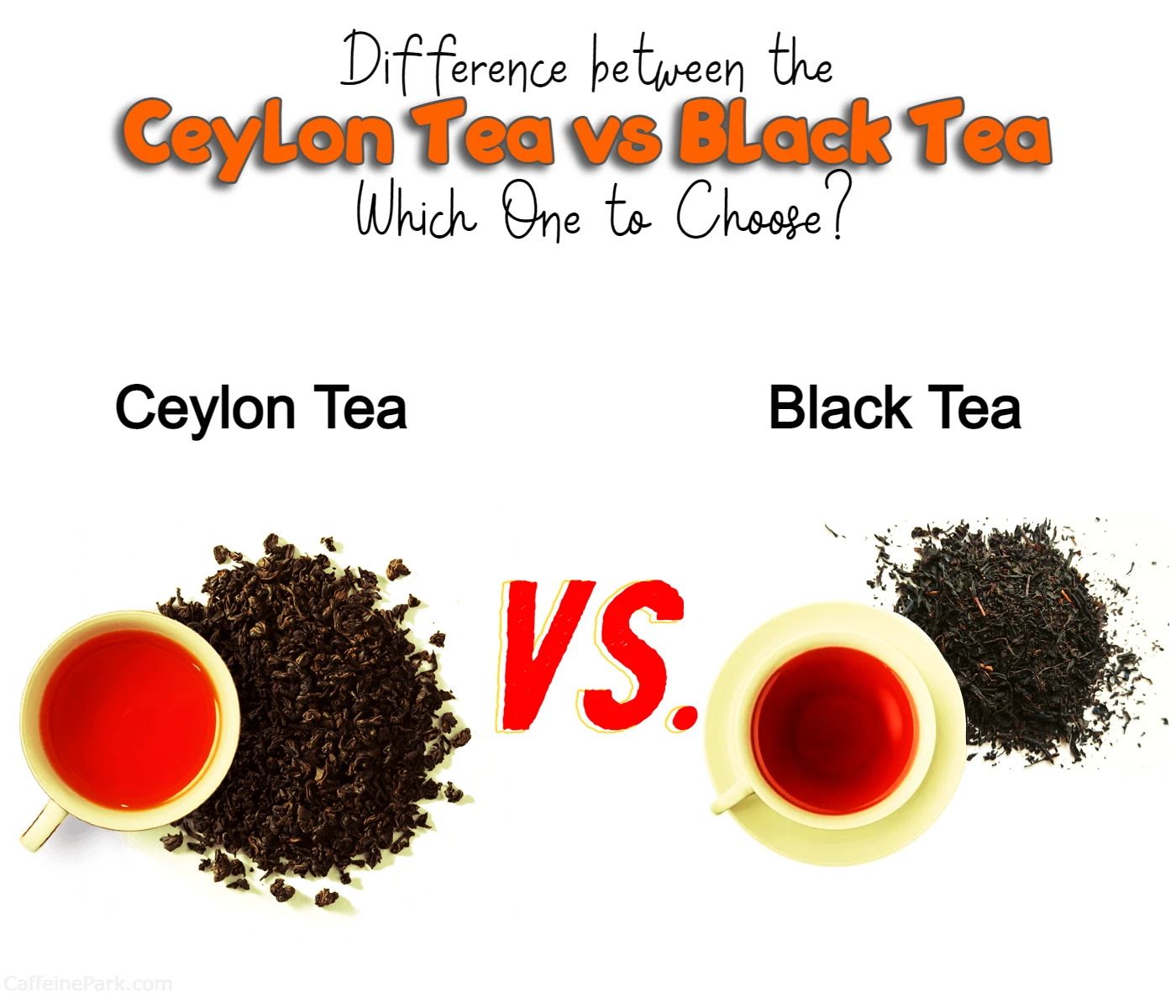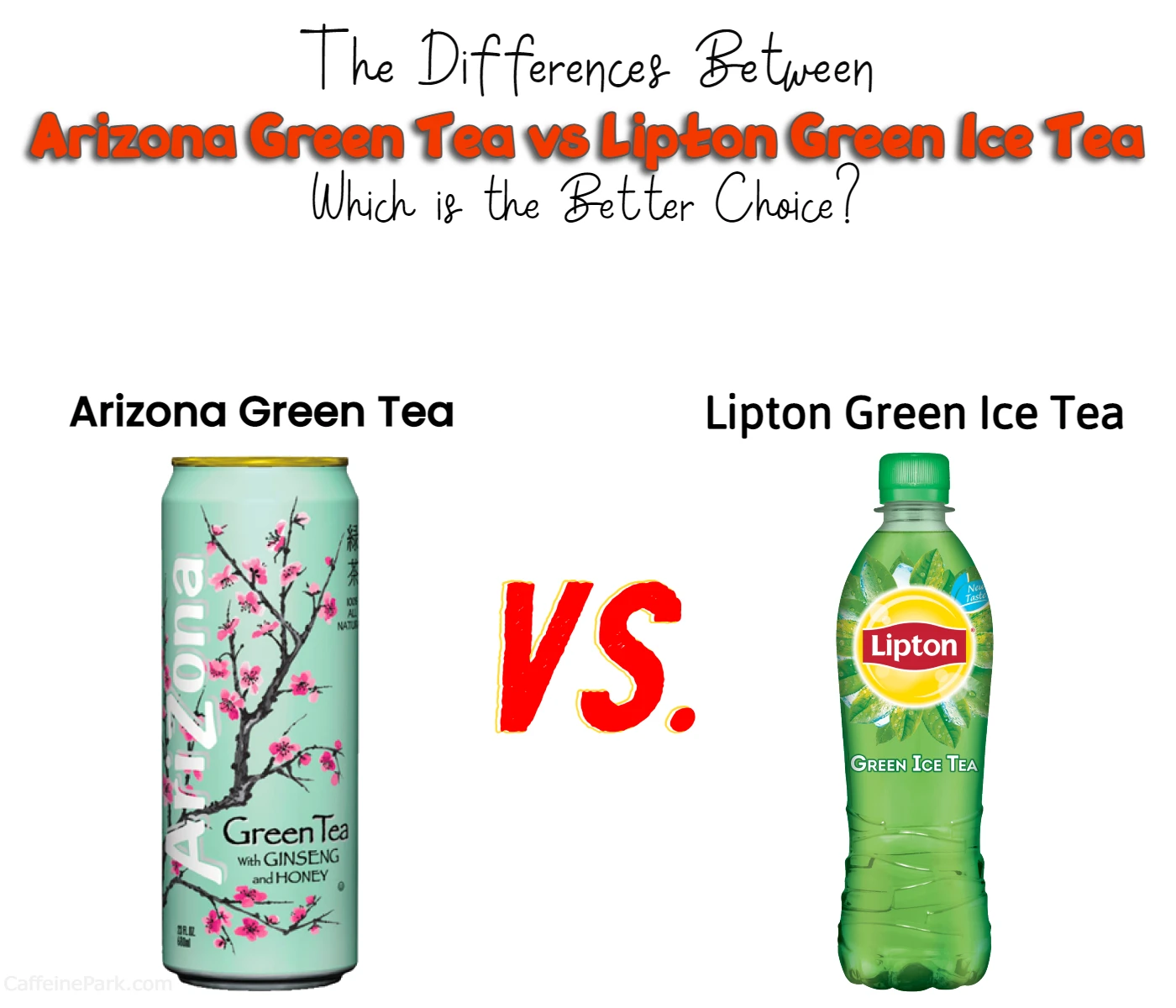
Welcome, tea enthusiasts! Are you curious about the difference between black tea and Ceylon tea? Look no further, as we dive into the nuances between these two popular tea varieties.
For tea lovers, finding the perfect blend and variety can be an exciting journey. Whether you prefer a strong, bold flavor or a more delicate, nuanced taste, understanding the differences between tea types can enhance your tea-drinking experience.
In this blog post, we will explore the unique characteristics of black tea and Ceylon tea, including flavor profiles, growing regions, cultivars, processing methods, and grades. So grab your favorite teapot, settle in, and read on to discover the differences between these two beloved tea types. Don’t forget to read till the end to get a comprehensive understanding of the differences between Ceylon tea and black tea!
Here is a quick chart summarizing the main differences between black tea and Ceylon tea:
| Aspect | Black Tea | Ceylon Tea |
|---|---|---|
| Growing Regions | Many regions around the world | Sri Lanka |
| Cultivar | Camellia sinensis cultivar | Camellia sinensis var. sinensis cultivar |
| Processing Method | Fermentation | Oxidation |
| Flavor Profile | Bold, robust | Delicate, nuanced |
| Grades | Range of grades available | Generally considered high-quality |
Difference between Black tea and Ceylon tea
First, let’s start with a brief overview of what black tea and Ceylon tea are:
What is black tea?
Black tea is a type of tea that is more oxidized than green, oolong, and white teas. The leaves are typically withered, rolled, and then fermented, which causes the tea to turn dark in color. Black tea is a popular type of tea around the world and is known for its strong flavor and bold aroma.
What is Ceylon tea?
Ceylon tea is a type of black tea that is grown exclusively in Sri Lanka. The tea is named after the former name of Sri Lanka, which was Ceylon. Ceylon tea is known for its unique flavor and aroma and is considered to be one of the finest teas in the world.
Now that we know what black tea and Ceylon tea are let’s dive into the differences between them.
Flavor Profile difference
The first and most significant difference between black tea and Ceylon tea is their flavor profile. Black tea has a bold and robust flavor, with notes of malt, wood, and sometimes a hint of smoke. On the other hand, Ceylon tea has a more delicate and nuanced flavor, with notes of citrus, honey, and spice. Ceylon tea is often described as having a bright, lively flavor with a crisp finish.
Growing Region difference
Black tea can be grown in many regions around the world, including China, India, and Africa. In contrast, Ceylon tea is grown exclusively in Sri Lanka, which is a small island nation in the Indian Ocean. The climate and soil in Sri Lanka are ideal for growing tea, which is why Ceylon tea is known for its unique flavor and aroma.
Caffeine Content difference
The caffeine content of tea can vary based on a number of factors, including the type of tea, the brewing time, and the amount of tea used. Here’s a breakdown of the caffeine content in black tea versus Ceylon tea:
- Black Tea – Black tea contains around 40-60 mg of caffeine per 8 oz cup. The caffeine content can vary based on the type of black tea, with stronger teas like Assam and Darjeeling containing more caffeine than lighter teas like Ceylon.
- Ceylon Tea – Ceylon tea generally contains around 50-60 mg of caffeine per 8 oz cup, which is similar to the caffeine content of other types of black tea.
It’s worth noting that the caffeine content of tea is significantly lower than that of coffee, which contains around 95 mg of caffeine per 8 oz cup on average. If you’re looking to reduce your caffeine intake, you can opt for decaffeinated versions of black tea and Ceylon tea, or try one of the caffeine-free alternatives mentioned earlier, such as herbal tea or white tea.
Cultivar difference
Another difference between black tea and Ceylon tea is the cultivar used to make the tea. The most common cultivar used to make black tea is Camellia sinensis, which is a tea plant that is grown in many regions around the world. In contrast, Ceylon tea is made from a specific cultivar called Camellia sinensis var. sinensis, which is only grown in Sri Lanka. This cultivar is known for its delicate flavor and aroma, which is why Ceylon tea has a unique taste that cannot be replicated in other regions.
Processing Method difference
The processing method used to make black tea and Ceylon tea is also different. Black tea is typically withered, rolled, and fermented, which causes the tea leaves to turn dark in color. Ceylon tea, on the other hand, is typically withered, rolled, and then oxidized. This process results in a tea that is lighter in color than black tea but has a more nuanced flavor profile.
Grade and Quality difference
Finally, the grade and quality of black tea and Ceylon tea are different. Black tea is available in a range of grades, from low-quality tea bags to high-quality loose-leaf tea. Ceylon tea, on the other hand, is generally considered to be a high-quality tea that is available in a range of grades, from lower-end tea bags to high-end loose-leaf tea.
Conclusion
In conclusion, black tea and Ceylon tea are both types of tea that are enjoyed by tea lovers around the world. However, they are different in terms of their flavor profile, growing region, cultivar, processing method, and grade and quality. Black tea is bold and robust, while Ceylon tea is delicate and nuanced. Black tea can be grown in many regions around the world, while Ceylon tea is grown exclusively in Sri Lanka. Black tea is made from the Camellia sinensis cultivar, while Ceylon tea is made from the Camellia sinensis var. sinensis cultivar. Black tea is typically fermented, while Ceylon tea is oxidized. And finally, black tea is available in a range of grades, while Ceylon tea is generally considered to be a high-quality tea.
Both black tea and Ceylon tea have their unique characteristics, and the choice between the two ultimately depends on personal preference. If you prefer a bold and robust flavor, then black tea is the way to go. But if you enjoy a more delicate and nuanced flavor, then Ceylon tea might be more up your alley. Whichever tea you choose, you can be sure that you are enjoying a delicious and healthy beverage that has been enjoyed for centuries.
Alternative to Ceylon tea and Black tea
If you’re looking for alternatives to black tea and Ceylon tea, here are a few options:
- Green Tea – Green tea is made from the same plant as black tea and Ceylon tea, but it is not oxidized or fermented. Instead, it is heated or steamed, which helps to preserve the natural flavor and antioxidants. Green tea has a more delicate flavor than black tea and Ceylon tea, and it is often associated with health benefits.
- Herbal Tea – Herbal tea is made from a variety of plants and herbs, such as chamomile, peppermint, and rooibos. These teas do not contain any caffeine and are often enjoyed for their soothing and calming properties. Herbal tea can be brewed hot or cold and can be sweetened with honey or other natural sweeteners.
- Oolong Tea – Oolong tea is a partially fermented tea that falls somewhere between black tea and green tea. It has a complex and nuanced flavor profile that can range from floral and fruity to earthy and smoky. Oolong tea is often associated with weight loss and other health benefits.
- White Tea – White tea is made from the young leaves and buds of the Camellia sinensis plant. It is the least processed of all the teas and has a delicate and subtle flavor profile. White tea is often associated with anti-aging and antioxidant benefits.
FAQs
The main differences between black tea and Ceylon tea are their growing regions, cultivars, processing methods, and flavor profiles. Black tea can be grown in many regions around the world, while Ceylon tea is grown exclusively in Sri Lanka. Black tea is typically fermented, while Ceylon tea is oxidized. And finally, black tea is available in a range of grades, while Ceylon tea is generally considered to be a high-quality tea.
The choice between black tea and Ceylon tea ultimately depends on personal preference. If you prefer a bold and robust flavor, then black tea is the way to go. But if you enjoy a more delicate and nuanced flavor, then Ceylon tea might be more up your alley.
Yes, you can add milk and sugar to both black tea and Ceylon tea. However, adding milk and sugar can mask the natural flavors and nuances of the tea, so it’s best to enjoy these teas on their own or with a small amount of honey or lemon if desired.
Read More:





